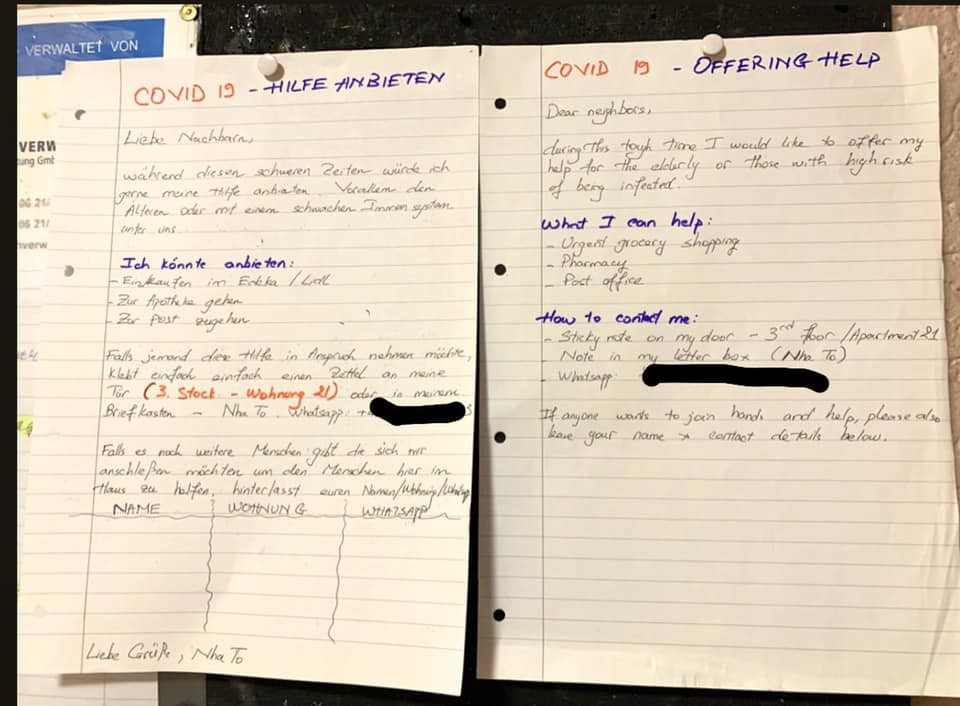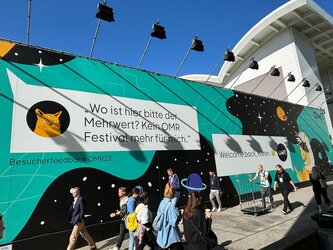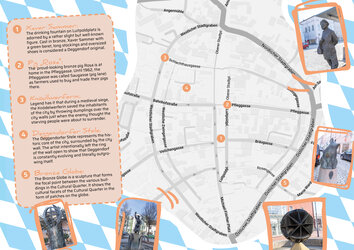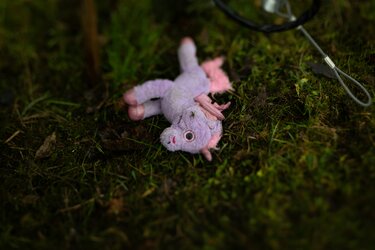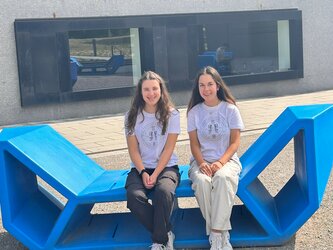
Supportive messages offering assistance sent to neighbours during the covid19 pandemic.
"Social distancing" and "self-quarantine" have become buzz words and now appear to be 2020’s most searched words. Nonetheless, governmental safety measures and the obligation of physical space created a taste of isolation due to the inevitable loss of human contact.
Being socially connected is considered as "a fundamental need of human being." Human connection at an intellectual level is, at some points, the weapon to fight off negativity, the psychological encouragement for us to strive and thrive further. Many researchers have proved that people in genuine, meaningful and constructive relationships tend to stay happier, healthier, and have a better perception of productivity and personal purposes.
In the wake of covid19 pandemic, it has brought to public attention the significance of communication, especially with family, friends and associates. There is no better time to reconnect, spread positive vibes and to nourish a stronger sense of community solidarity.
Active participation in this global wave of uniting can be shown in many ways. For us, as international students, this is indeed the opportunity to reach out, join hands and to support each other. Not only during this particularly challenging time but also through our educational journey at THD, we, together, can make a difference for the better of the university environment and of the local society where we currently reside in.
Starting from little things like assisting elders and those who might be at greater exposure of infection: doing their grocery shopping, taking out their trash or walking their dogs. There has been joint cooperation between the younger generation of residents to aid and take care of their neighbours within the surrounding area. This action of kindness brings a smile back on the face of many senior citizens. It also reflects as a lesson of ethics and manners to the millennials and school pupils.
If you have been catching up with current news, you would have noticed a lot of positive efforts being recently made to help unfortunate social classes, i.e., homeless people and immigrants. Contributors wrapped food and essentials in several plastic bags and placed them on the fence of the park and different bridges so that whoever in need can take them. Others donated masks, bags of rice, water and other canned foods to numerous regional charity organizations, so in return, they could hand it out to local people suffering difficulties.
Looking at this outbreak from another perspective, one that is brighter and more optimistic, I can say hardships inspire and draw out the benevolence, affection as well as goodwill in people. This has taught us to become less greedy and self-centred.
Another aspect that has come under my attention is how much more grateful people have grown to be. Conversations and moments spent with friends, family and acquaintances have become scarce and invaluable. We evolved in this world, we lived in a rat race, rushed to climb up on the ladder of achievements, and forgot to give our loved ones enough time. Often, they did not get enough attention and gratitude from us. But right in this supposedly suffering experience, people instead strive to reconnect, to reach out to give each other love and support, irrelevant of the distance and situation.
For us, students studying abroad means staying away from family, for a lot of time—months, if not years. But reconnecting nowadays couldn’t be easier with the emergence of social media. Facebook, FaceTime, Whatsapp, Viber, Skype and all sorts of channels of communication can provide you with easy, immediate contact. Just pick up the phone and call someone. Reminisce with that cousin you have not spoken to in years. Greet that old high school friend and start catching up with life and gossips. You never know, your call might just make someone else's day, if not, your own!
Your Ha
Ha Nguyen is an outgoing and benevolent Vietnamese native pursuing her Master’s degree at DIT’s European Campus Rottal-Inn who wishes to pass on the compassion of positive vibes through her enthusiastic writings.
